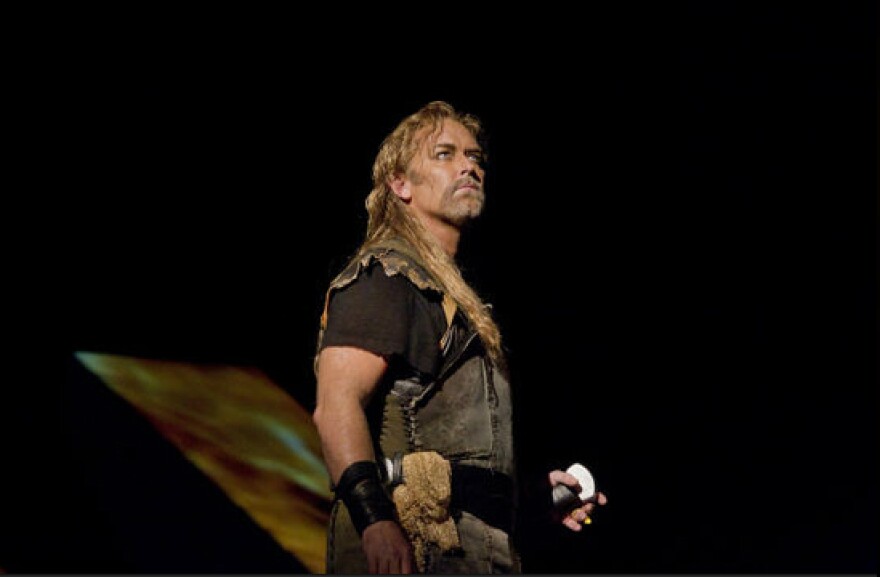In "Siegfried" we return to the origins of Wagner's conception of "The Ring." Before there was an explanation and an event, a plot before a back story.
These various sketches, fragments and early drafts were separated by a quarter of century from the opera's first performance (1851-1876).
We recreate the fairytale atmosphere of "Das Rheingold" with a dwarf, a dragon, giants, a singing bird and a boy so innocent he has "never" seen a girl.
The entire cosmos hinges on whether or not - as he emerges from a wild forest upbringing - he will manage to put together the intergenerational and superhuman puzzle of his origins and possible future.
Siegfried is nothing less than the last hope of a dying world almost fragmented beyond all salvation. The symbol of the mysterious sword fragments left to him by a father he never met and a mother he never knew stand in as a metaphor for his whole life.
In "Die Walkure" he has not yet been born when we leave him, his mother hidden from Wotan by the rebellious daughter Brunnhilde, reduced to a mortal surrounded by a ring of fire.
Act one opens with the carefree and comic air of a cartoon. A complaining dwarf stepfather says he is unappreciated despite all his efforts to raise the "wild boy', here playing with a bear.
There is a partial recounting of his origins and debt to the dwarf Mime, but the mixture of half truths and utter lies do not make a convincing picture. Literally to wile away the time, Siegfried accomplishes the impossible. He forges the sword to one of the greatest of all tenor arias:
Nothung ! Nothung! Neidliches Schwert!
Nothing ! Nothing! Coveted Sword!
The whole exuberant, heroic and unfettered nature of his character is masterfully revealed in this moment. What follows is the partial fulfillment of the world's hopes.
He begins to understand his own nature, defeats the dragon (that we all could), kills his scheming would be protector, encounters his grandfather and bests him in arms, and finally - isn't it always the case - with the aid of a communion with nature finds the woman Brunnhilde, who once saved his life.
In the ecstatic close beginning with her breathtaking awakening, "Heil dir, Sonne (Hail, the Sun …)," she declares one of the greatest love oaths of all time: I loved you before you were born! And finally in unison:
Mir strahlt zur Stunde Siegfrieds Stern
For me shines Siegfried's star
Robert Lepage's landmark production of Wagner's "Der Ring des Nibelungen" is back on the occasion of the 200th anniversary of the composer's birth.
Jay Hunter Morris reprises his role of the title hero in the third installment, sharing the role with Lars Cleveman. Deborah Voigt and Katarina Dalayman alternate as Brünnhilde, Mark Delavan and Greer Grimsley are Wotan, and Eric Owens and Richard Paul Fink share Alberich, with Principal Conductor Fabio Luisi on the podium.
Tune in this Saturday at 10:00 a.m. as the bicentennial of "The Ring" continues, here on KPAC 88.3 FM.




